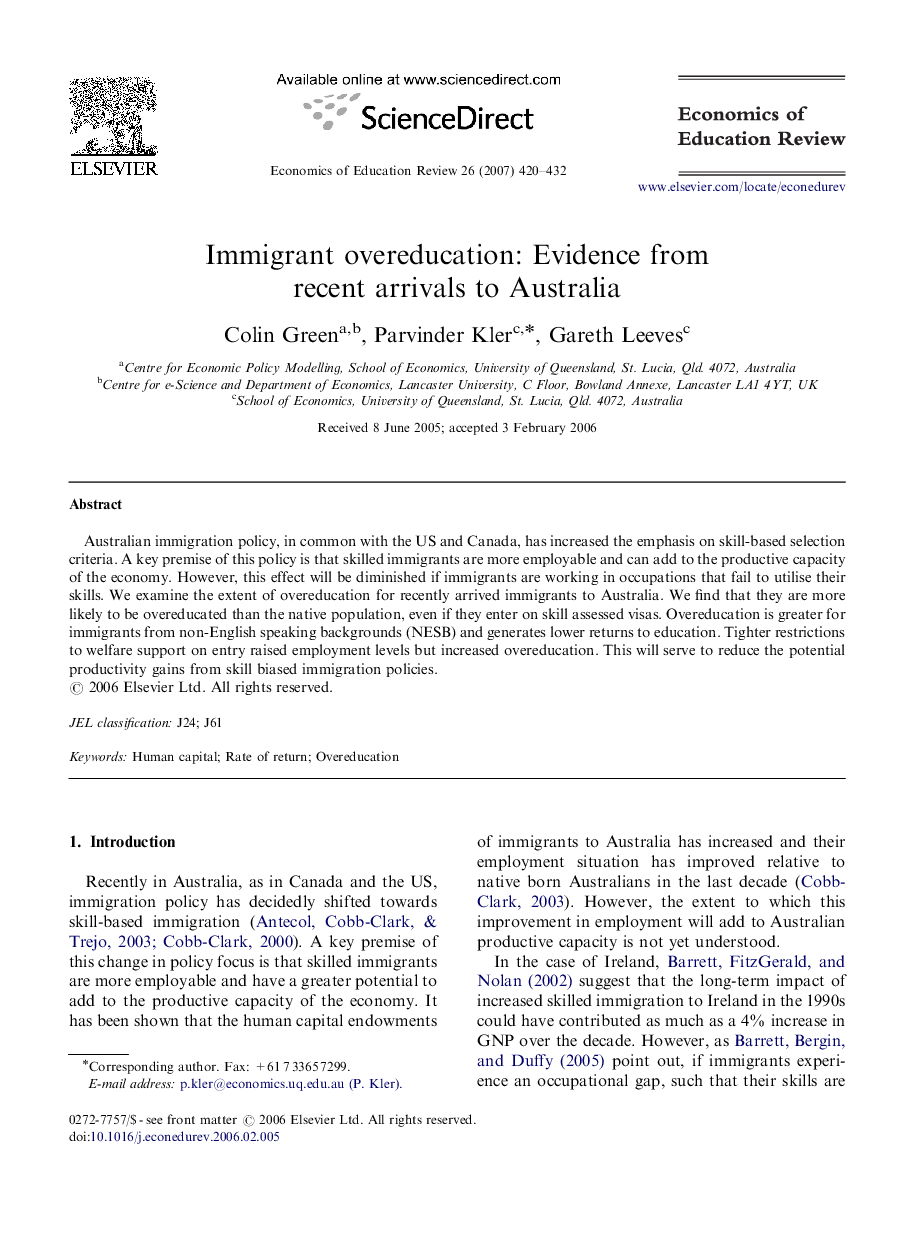| Article ID | Journal | Published Year | Pages | File Type |
|---|---|---|---|---|
| 354948 | Economics of Education Review | 2007 | 13 Pages |
Australian immigration policy, in common with the US and Canada, has increased the emphasis on skill-based selection criteria. A key premise of this policy is that skilled immigrants are more employable and can add to the productive capacity of the economy. However, this effect will be diminished if immigrants are working in occupations that fail to utilise their skills. We examine the extent of overeducation for recently arrived immigrants to Australia. We find that they are more likely to be overeducated than the native population, even if they enter on skill assessed visas. Overeducation is greater for immigrants from non-English speaking backgrounds (NESB) and generates lower returns to education. Tighter restrictions to welfare support on entry raised employment levels but increased overeducation. This will serve to reduce the potential productivity gains from skill biased immigration policies.
